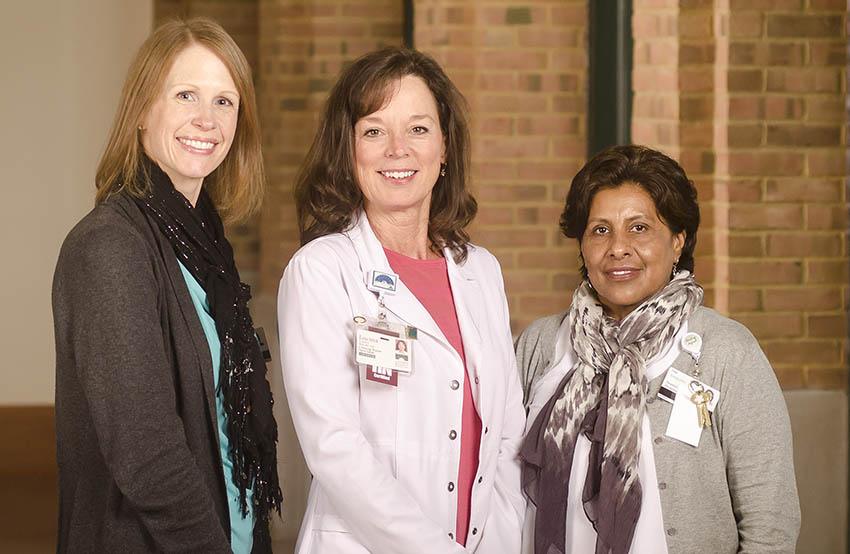A Team Approach

Our team consists of a Clinical Nurse Specialist and a Registered Dietitian, both Certified Diabetes Educators, and a Diabetes Paraprofessional. We work together to provide comprehensive diabetes care.
The diabetes team also collaborates with primary care providers in the area to ensure your care is well-coordinated.
Our Services
We can help people manage Type 1, Type 2, and gestational diabetes. We also place Libre Pro continuous glucose monitors to help with treatment decisions.
Education
Living with diabetes requires understanding your disease, learning new skills to manage it, and keeping a positive outlook. Our education includes:
- Healthy eating options with diabetes
- Monitoring blood sugar and interpreting the results
- Importance of physical activity and how to become more active
Wound Care for Diabetic Wounds of the Lower Extremity (DWLE)
Our Wound Center provides a collaborative effort among referring physicians, surgeons, podiatrists and other specialists. Treatment options include aggressive wound debridement, bioengineered tissue products and negative pressure wound therapy.
Hyperbaric Oxygen Therapy (HBOT) is another advanced treatment option used adjunctively with an aggressive multidisciplinary therapeutic pathway and is effective in decreasing major amputations in diabetic patients with severe neuropathic and/or ischemic foot ulcers.
HBOT can also improve a patient's response to local soft tissue and bone infection and can be considered as an adjunctive therapy for patients with Wagner grade III or higher DWLE.
Read more about our Wound Center